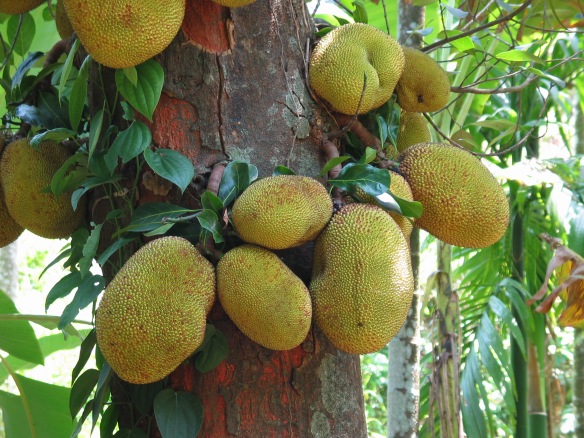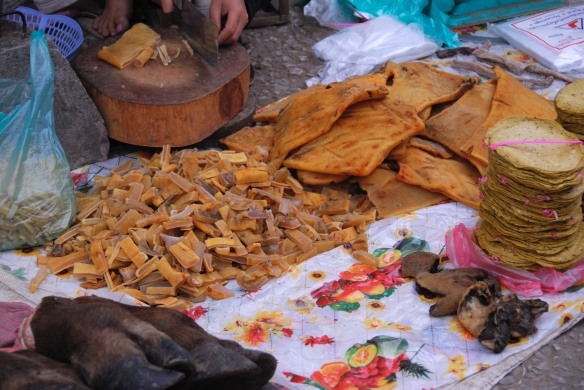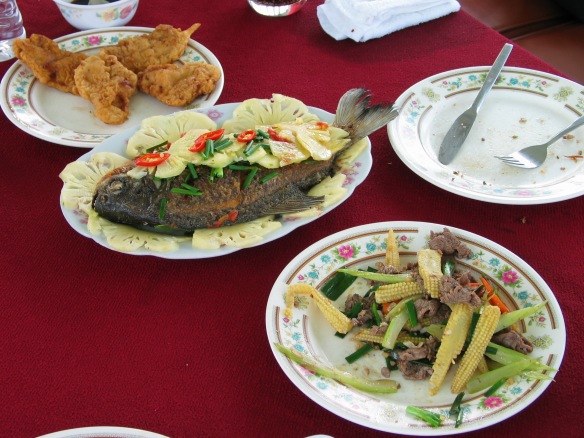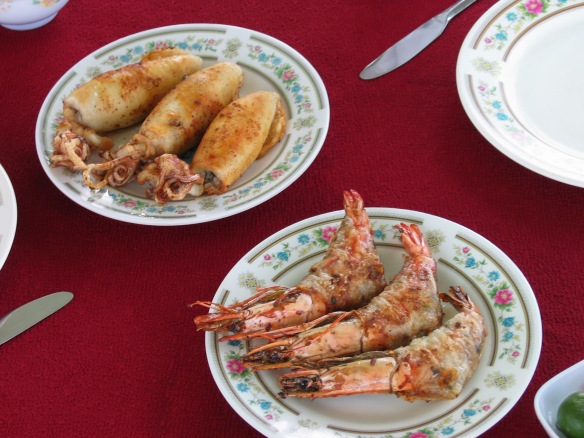Slowly Rick garnered the pertinent facts about Maricela. She came from a large family where education was a priority. All five of the Howard siblings had at least some graduate school time or professional training under their belts. Maricela was an intellectual prodigy and had gone to college entirely on grants and scholarships. She’d been a natural scholar, the acknowledged golden child of any seminar class. Ironically, his parents moved briefly to Brookville when Maricela had finished up her undergraduate work there; they’d just missed one another.
She worked as a financial advisor with an ethical investments firm, a job she loved since she began there eight years ago. She had been promoted twice and refused the next offer for further advancement, preferring to keep close to her individual clients. Her field of expertise was alternative energies and fair trade. Maricela firmly believed the phrase sustainable and responsible investing was not an oxymoron.
She’d had one, failed, live-in relationship. When she discovered his coke habit she ended the relationship. “It wasn’t just that he lied to me about how much he used,” Maricela explained. “And it wasn’t the way I found out: catching him in the kitchen over the butcher block, for God’s sake. He promised he’d ease up on what he was using, but I know too much about how much fun partying is.
“Speedy drugs weren’t ever my thing. They just made me nauseous and I preferred alcohol anyway, so it wasn’t like I felt holier than thou. It was the way he wasn’t willing to stay clean, and how cagey he was being about the realities of that fact. He kept pretending he was in control of his habit and lied about how much he did. Typical user behavior. It was the set up for more hiding and bullshit stories that eventually made me end it.”
The tone might have made Rick suspicious, because in the voice of the wrong woman it sounded phony. Worse, it sounded like what someone with a martyr complex might say. But Maricela was simply stating the facts. Her ex hadn’t wanted to be honest about needing to snort coke; and Maricela was unwilling to settle for a relationship based on prevarications.
Maricela’s friends held her in affection and quite often in awe. Despite her formidable brainpower her personality was easy and accessible; there was nothing of the intellectual snob about her. She’d cohabitated for the last 3 years with a long time friend named Sarah. Together the two of them had rented the converted loft space.
When Sarah was diagnosed with cancer the prior spring, Maricela put her own social life on hold in order to be there for her friend. That was the reason why she’d been out of the dating pool. It had nothing to do with an unwillingness to engage with other people. On the contrary: a deep commitment to the people she cared about led Maricela to prioritize how she used her time.
Almost every bit of information Chris and Sybil had offered to describe Maricela turned out to be accurate. The only piece of information they’d gotten wrong was her choice of alcohol. Instead of wine, most of the time Maricela drank near beer.
Rick noted all of these things and thought, This woman is someone worth getting to know, no matter where it leads. Surprised, Rick actually asked himself if he’d be willing to just be friends with her if the physical chemistry didn’t pan out. He was even more surprised when the answer to that question was, yes.
“I’m not being coy about bringing you home with me, you know,” she informed him one day; the two were having lunch. “Trust me on this one. In my earlier days we’d already be there! But Sarah’s really sick. She’s going through chemo, and the procedure is quite simply hell. It’s really important right now that we keep the apartment as germ-free and sterile as possible. You understand, right?”
“Sure,” Rick said, and hesitated. “No, actually, I don’t. I doubt if I can even begin to understand. I don’t think I’d know how to handle it if someone I was close to got cancer,” he admitted. “Or if I could be as supportive.”
Maricela turned what he’d said over in her mind and shrugged. “She’s my best friend. I sit with her when she’s awake half the night throwing up because the poisons in the chemotherapy mean she won’t keep anything down for long. The other half the night she can’t stop crying because she knows she’s getting weaker and weaker, and feels sicker and sicker. She’s really terrified that this is it, she’s going to die, and in the end all the chemo and medical attention in the world aren’t going to make a bit of difference. She’s scared maybe she’s putting herself through hell for nothing. And me along with her.
“Next,” continued Maricela relentlessly, “Sarah lost her hair. It was coming out in patches so Sarah had it all shaved off. Then she went through this awful period where her face puffed up. Her skin was reacting to a combination of the drugs, and she couldn’t go out in bright sunlight because of allergic reactions to some of the other meds. And when you’re a friend, all you can really do is just, be there. It’s not your sickness or your pain.
“Trust me. When you see it, you wouldn’t wish it on your worst enemy.
“The only thing you can do is fetch the bucket, get a cup of herb tea, and offer to do the shopping. Just being there for your friend and not being afraid to do that little extra helps more than anyone imagines. A person with cancer needs you to be normal, because nothing else in their life is any more. Nothing else around them will ever be the same again. I won’t go into the gruesome details about the bouts of depression Sarah endures, but picture your blackest, darkest thoughts. Magnify those by about a thousand and maybe you have some idea of how deep the depression of a person with cancer and on meds is. A cancer patient doesn’t know if it’s her or the heavy-duty medications doing the talking, or thinking, or feeling all those awful things.
“Every day becomes a big surprise, and not one you want to wake up to. Are you going to manifest new symptoms? How’s the old mood going to be, will you feel incapacitated or can you function again? What fun tests, and diagnostics, and medical procedures do you have scheduled this time? What will the news be, and how are you going to be able to bear to hear it? There was a phase where all the test results were bad; every one of them was really horribly grim. Sarah started going in and out of depressions where she couldn’t stand to be around anybody at all. What she was feeling, the agony, the fear, and exhaustion finally overwhelmed her.
“It’s not a question of staying supportive,” Maricela repeated. “Cancer survivors travel to hell and back. All I do is let her know I’ll be waiting there each time she returns.”
Rick listened to Maricela with both admiration and dismay. “I’m not so sure. I’d be scared I’d react the wrong way and make things worse,” he persisted. “Or that I wouldn’t be able to face someone else’s illness. I don’t know if I’d be up to being supportive.”
He looked at Maricela’s face as he admitted that, afraid to see her light brown eyes darken. But he didn’t want to present himself in a false light, especially when compared with the relentless clean light of her frankness. Only honesty was admissible.
He was silent, thinking about all of the relationship games he’d so willingly played over the years. One set of games to get close enough to climb into bed; another set to extricate himself from the mussed up sheets afterwards. When he realized she was waiting patiently for him to talk, or to remain silent, just as he wished, Rick surprised himself for the third time in an hour. He opened his mouth and as if in the third person, Rick heard himself really talk.
“I don’t know what I’d do if someone I loved was ill, much less going to die. I’ve never been in that situation! My mom was always great. She’d make home made chicken soup with egg noodles, nothing fancy, but it was like the great home remedy for anything that ever made a little kid feel bad. I would pretend to have a really, really bad cough, just to get her to make it.
“It’s the only dish I ever make for someone on a regular basis.” Rick was thinking out loud; silent, Maricela listened without judgment as he began to peel away protective layers.
“My mother made soup, but it was about emotional support. When I make it for anyone it’s, soup. The emotional support’s what I get, by recreating the atmosphere of my mom. It’s never about doing something for another person at all.
“Jesus! Why didn’t I ever notice this before? For me,” his voice was almost at a crawl. Maricela actually leaned across the table so she could hear him without having to interrupt to ask him to speak more loudly. “For me, relationships were, are, something to have fun with. It’s all speed dating. I never put much energy into the mutual support aspect of it, beyond being honest and not cheating on a girlfriend as long as we’re together.
“Jesus, cancer!” Rick shuddered in his chair at the mental image of watching a loved one waste away, or bearing witness to a beloved person’s features distort with pain. “Maybe my life style as a Good time Charlie was actually good protection. It always worked pretty well, as long as I wanted it to. Well.” He looked away to the back wall of the bar, refocused on the present and the woman listening carefully at the other side of the small table. “And you? How did you survive those years in the jungle?”
– from my short story “Speed Dating” in Broken In: A Novel in Stories. Available in paperback or eBook at amazon.com, amazon.de, and amazon in countries everywhere.
Like this:
Like Loading...
























